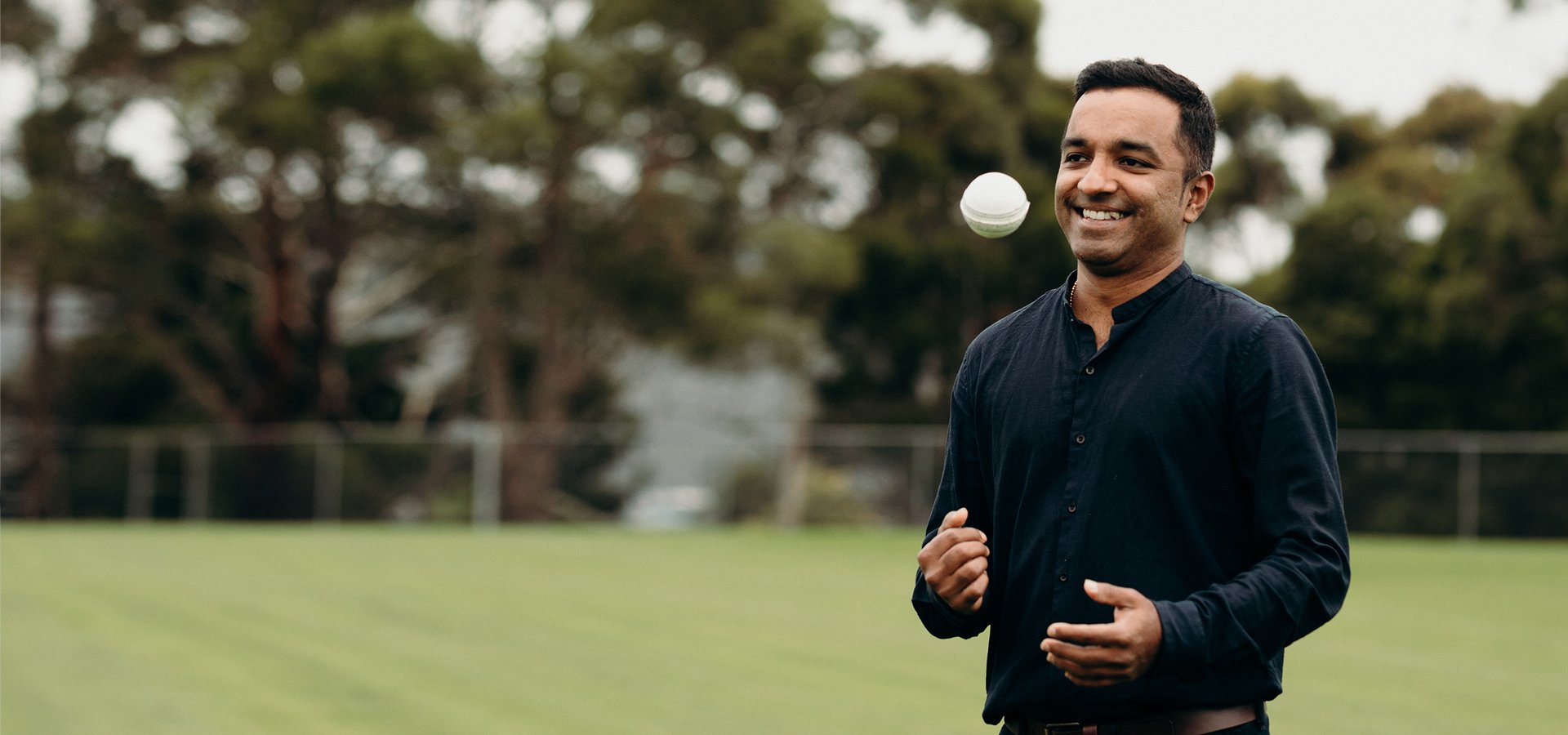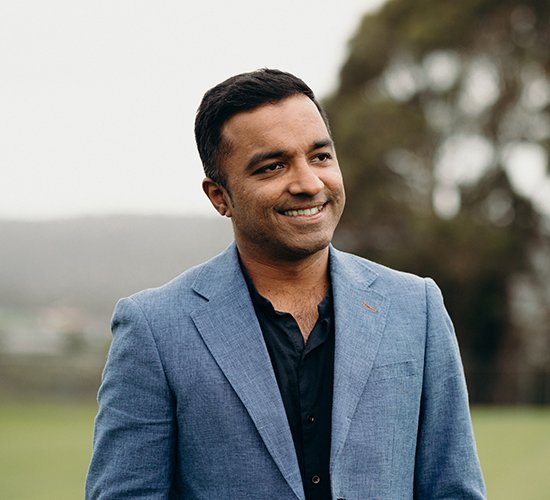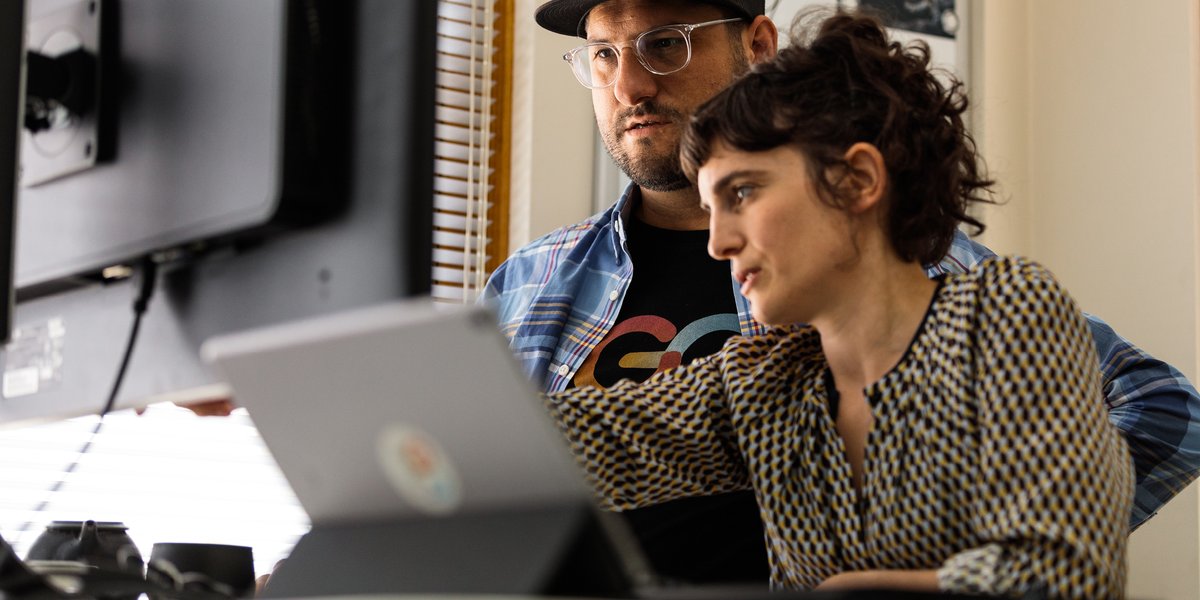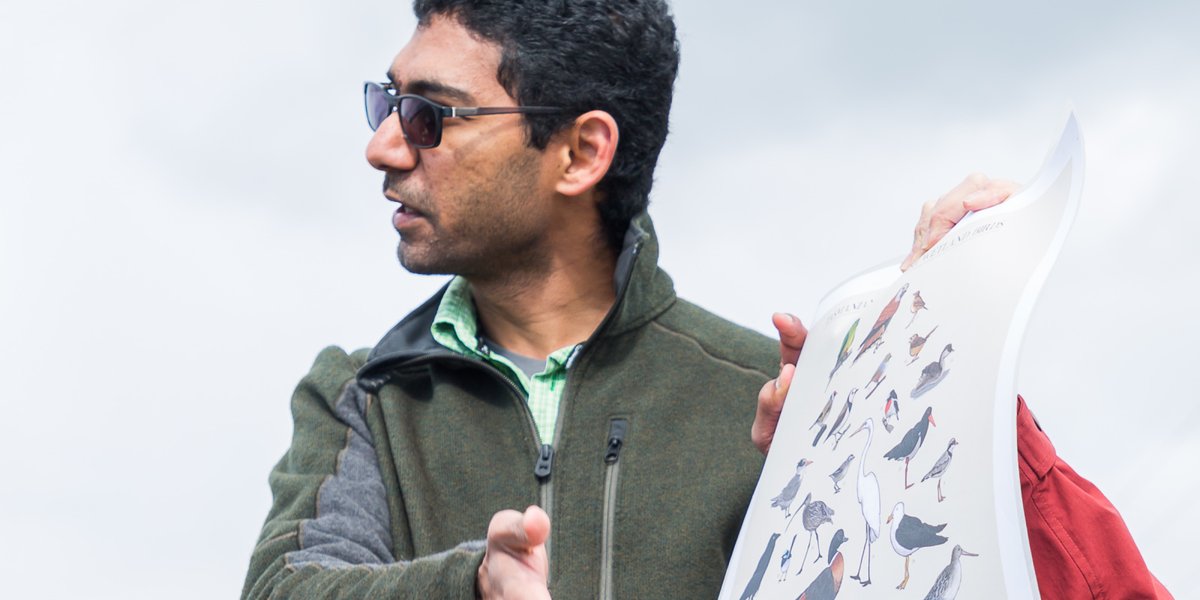Prajit Parameswar
"When I started my job, I wouldn't say that I knew Tasmania was a renewable energy generator. But as I continued to grow in my career, renewable energy and decarbonisation of the economy is one of the key reasons why I'm still there."

“I'm proud we can ensure that students who play with us don't pay for it. We’ve managed to get scholarships for them. I'm taking a leadership role, passing on the knowledge that I've learned over many years. It makes me very happy."

In 2006 Prajit Parameswar left Goa; the small, coastal state in south west India where he had spent his childhood.
When Prajit’s plane took off, it was 35 degrees Celsius in Goa.
It was 5 degrees Celsius when he landed in Tasmania.
In Goa, Prajit knew he wanted to complete his higher education internationally. He had excellent results and a love for business. He looked at options all around the world, wary of the cost of studying and living in America and the UK. Then, he met two representatives from the University of Tasmania (UTAS). They offered Prajit a partial scholarship to study in Hobart, southern Tasmania.
“I did some research and found Tasmania to be a quiet place, an opportunity to study harder. So I made the goal to come to Tasmania to study at UTAS. I had to mortgage my parents' house to get an education loan. It was hard, a tough financial decision, but it was a risk worth taking. Sitting here now, if I look back… I know I made the right call.”
Stepping off the plane in 2006 and feeling the cold, 5-degree weather on his skin, Prajit was shocked in more ways than one. He wasn’t originally impressed by the empty hills of Cambridge on the 20-minute journey from Hobart airport to the CBD. He had wanted quiet. But this?
Luckily, the feeling didn’t last. Prajit says it was the people that helped him understand what makes Tasmania so special.
“Tasmania has always been welcoming, and the people here are very welcoming. When you walk the streets, you see another person walking opposite, and they give you a smile. You don't get that very often in other countries, or even in other states of Australia.”

Prajit completed two Masters degrees at UTAS; a Master of Professional Accounting and a Master of Business. He found university life very supportive, but there was one area he felt could use some help.
“I'm very passionate about cricket. Not surprising, considering I'm from the subcontinent. I came here and started playing for the University Lions, but was surprised that I had to pay to play. In Goa, as a student, I played for my state at junior levels, and I used to get paid to play. I thought that was a bit hard on students, especially international students, to come here and have to pay.”
With a few friends and a shared vision, Prajit set out to solve this problem, along with other problems unique to international students in a city and a culture far from home. Life is expensive abroad. It can also feel isolating, and homesickness can be devastating. Cricket was a shared passion between newcomers and more established Tasmanians.
A different kind of cricket club, Prajit thought, could bridge cultures and create new families for those far from home.
The club—the Summerleas Eagles—has grown over the past decade to include four teams and over fifty active members, with players from Australia, New Zealand, Fiji, India, Pakistan, Sri Lanka, South Africa, and Bangladesh. In their first year, the Eagles were invited to compete in the Huon Channel Cricket Association (HCCA) league, and last year, three of their four teams won championships. In 2022 Prajit is focused on continuing to build the women's team which was introduced this year, further cementing the inclusiveness and diversity values of the Eagles.
The club takes up a lot of time, but Prajit wouldn’t have it any other way.
“I'm proud we can ensure that students who play with us don't pay for it. We’ve managed to get scholarships for them. It makes me very happy. What makes me happier, perhaps, is the fact that I'm taking a leadership role; coaching, mentoring, and passing on the knowledge that I've learned over many years.”

After graduating university, Prajit was offered graduate jobs in multiple states. He chose to stay in Tasmania.
Prajit began working at Hydro Tasmania, Australia’s largest generator of renewable energy. When he started work Tasmania’s energy resources weren’t high on his radar, but it eventually became a source of pride to be living and working in a state that runs on 100% renewable energy.
“When I started my job, I wouldn't say that I knew Tasmania was a renewable energy generator. But as I continued to grow in my career, renewable energy and decarbonisation of the economy is one of the key reasons why I'm still there. Tasmania’s 200% renewable energy target excites me.
“Now every barbecue that I go to, I talk about the renewable resources that we have, and why we should be so proud and passionate of this fact. I think many of us live and work to ensure that our future generations live happily. I want my daughter to breathe clean air, and her kids to do that as well.”
Outside of work, family, and cricket, Prajit continues to give back to his community. He became a Certified Practising Accountant (CPA), and helps not-for-profits with their accounting. Along with some fellow Tasmanians, he and his wife opened a Zambrero franchise in Kingston and North Hobart. They chose Zambrero for its plate-for-plate initiative – for every meal sold, one is donated to someone in need around the world.
Prajit says he’s been very fortunate to receive the opportunities he has but, like many Tasmanians, he has worked extremely hard to get there.
“Tasmania is a land of opportunities. If you persevere, and you have that strong resolve, you will get what you want. But it's not easy when you start off, especially if you're coming here as an international student. The key is for you to continue that journey, keep pushing. You will get there.”
Prajit Parameswar is featured in partnership with our friends at Study Tasmania.

We worked with southern Tasmanian photographer Jess Oakenfull for this Tasmanian story.
Read about more Tasmanians

Roxane & Alex Bandini-Maeder

Jemma Blair
